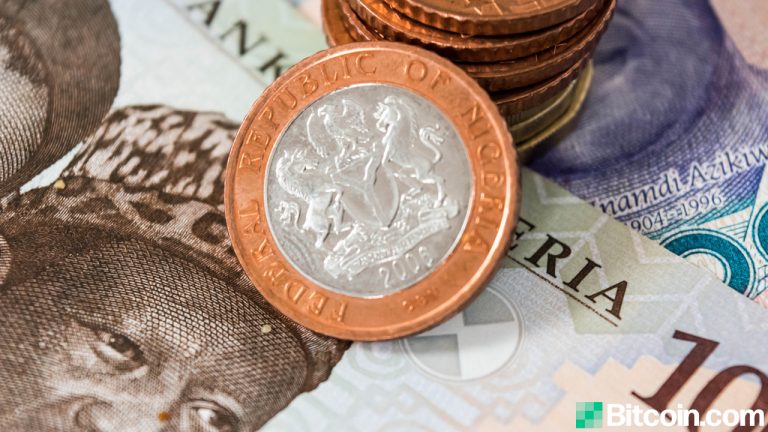Nigerians Shun Local Currency— Seek to Protect Wealth From Inflation and Currency Depreciation with Foreign Currency

Nigerians are thought to be accumulating foreign currencies which they believe will protect their wealth from the naira’s volatility as well as the surging inflation. Further, as a research paper in a journal published by the Central Bank of Nigeria (CBN) found, Nigerians’ use of dollars exceeds IMF’s 30% threshold.
Exchange Rate Volatility and Currency Substitution
According to a report, this preference for foreign currencies (or currency substitution as CBN economists call it) however, needs to be contained in order to maintain the effectiveness of the central bank’s monetary policy. Remarking on the importance of curbing this currency substitution phenomenon, three CBN economists said:
Higher real-exchange rate volatility is associated with an increased level of currency substitution. (Therefore) there is a need to contain “exchange-rate volatility and inflation as a way of curbing the spate of currency substitution in the country.
Meanwhile, the report also quotes the economists explaining how one measure of currency substitution, “the ratio of foreign cash deposits to naira deposits on-demand in the banks exceeded the IMF’s 30% threshold from 2009 following the global financial crisis.” According to the researchers, this ratio only “hit a peak of 98.2% in 2014 before declining to 83% in 2018.”
IMF Threshold
Nevertheless, the broader measure of foreign currency in banks to naira savings, demand and term deposits “stayed largely within the IMF limit over the study period from 1995 to 2018.” On the other hand, Nigeria’s inflation rate quickened “to the highest level in four years in March and is now more than double the 9% limit of the central bank’s target range.”
In the meantime, as part of its response to the currency substitution phenomenon, the CBN has previously asked: “merchants to stop offering local goods in foreign currency.” The central bank also “banned the practice of accessing the foreign-exchange market for settling domestic transactions.” However, in early February of 2021, the CBN’s war against currency substitution was broadened to include cryptocurrencies. Just like foreign currencies, cryptos also act as a hedge against inflation and currency depreciation.
Meanwhile, the three Nigerian economists believe that diversifying the economy “should be of paramount interest to boost the base for foreign-exchange earnings.”
What are the other reasons why Nigerians prefer holding US dollars? Tell us what you think in the comments section below.
Comments
Post a Comment